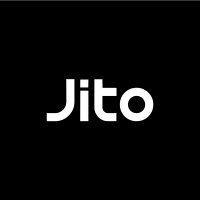Airdrop is coming! Learn about Solana's recent technologies and popular projects in one article
Author: Daniel Li, CoinVoice
As a representative of established public chains, Solana is slowly recovering from the heavy blow dealt by FTX. With the recent surge in Bitcoin prices, the Solana token SOL has also begun to rise strongly, with an increase of up to 69.96% in the past 30 days, surpassing more than 90% of other tokens. According to CoinCodex's predictions, optimistic estimates for SOL suggest that its price could reach triple digits by the end of 2024.
The strong resurgence of Solana can be attributed to its past hardships, where the token price plummeted from over $200 to below $10, leading to a severely undervalued market cap. As the impact of the FTX incident gradually fades, Solana has been steadily building its high-performance blockchain infrastructure, rekindling investor interest. Additionally, recent concentrated airdrops from Solana ecosystem projects have garnered unprecedented market attention, with investors generally optimistic about Solana's prospects, suggesting that it may return to its former peak during this market wave.
01 Solana's Counterattack from the Sleeping Giant
The year 2022 was a heavy blow for the entire cryptocurrency industry. Countless crypto institutions faced frequent collapses, and Solana, as an established public chain, was no exception. Throughout 2022, Solana faced numerous challenges, including network outages and the collapse of FTX. Solana's market cap plummeted by about 93%, and its total locked value (TVL) dropped by 96%. The price of SOL also experienced a cliff-like decline. Coupled with the overall downturn in the cryptocurrency market, SOL's price barely stabilized and rebounded at a low of $8. By the end of 2022, hope for Solana's future seemed to have faded, with widespread speculation that Solana was about to enter a death spiral.
However, entering 2023, Solana did not fall into the death spiral as many expected. Instead, following a rebound in Bitcoin prices at the beginning of the year, SOL began to stabilize and gradually rise from its lowest point of $7.85. In the first quarter, SOL stabilized above $20. Although Bitcoin experienced significant corrections afterward, SOL's price remained stable around $20. By October, as the market entered a large-scale upward trend, SOL began to rise continuously, with its price once breaking through $60, peaking at $68.25. Compared to the lowest point of $7.85 at the beginning of the year, SOL's price has nearly increased eightfold, currently standing at $61.

The strong recovery of the Solana token has also led investors who initially had little hope for Solana to start hoarding SOL aggressively. In this wave of price increase, the Korean community, known for its enthusiasm for trading cryptocurrencies, has played a significant role. Reports indicate that in recent months, the Korean won ranked second after the US dollar in SOL fiat trading pairs, accounting for 12.3%. On the Korean exchanges Bithumb and Upbit, SOL was quoted at $64.34 and $63.61, respectively, both higher than the global average price of $61.80 per unit. This demonstrates the Korean community's fervent enthusiasm for purchasing SOL. SOL once dominated the trading volume on Upbit, Korea's largest crypto exchange, accounting for 7.65% of the total trading volume on that exchange.
The market's change in attitude towards Solana is not only due to the impressive price increase of its token over the past year but also because of the series of measures taken by the project team to revive Solana over the past year. These measures have renewed market confidence in Solana and attracted the attention of investors who had previously lost hope.
02 Why Solana Can Rise Again
Solana's strong recovery is closely tied to its strong leadership. Solana's co-founder Anatoly Yakovenko has nearly twenty years of experience in building high-performance operating systems, and his technical expertise has laid a solid foundation for Solana's success. Yakovenko is well-known for developing "PoH (Proof of History)." Another co-founder, Raj Gokal, is also a prominent figure in the tech industry. They both have confidence in Solana, believing it has the potential to become the "Apple" of the crypto world.
It is precisely because the founders of Solana are confident about its future that, despite the market's lack of optimism towards Solana, they continue to push for ongoing improvements and innovations in Solana's technology, leading to the current strong recovery of Solana.

In 2023, Solana introduced a series of new technologies to enhance its blockchain performance and promote application development.
State Compression Technology: Solana introduced state compression technology aimed at improving blockchain performance, reducing transaction costs, and enhancing the tradability of NFTs. This technology hashes transaction data in the Solana ledger and verifies Merkle tree accounts for application in smart contracts. This means that compressed NFTs can be created on-chain in a similar manner, but at a fraction of the previous cost. State compression technology provides Solana with higher throughput and lower transaction costs, attracting more users and developers.
Compressed NFT Technology: Solana launched compressed NFTs, a technology that will change the crypto market's perception of NFTs and bring about previously seemingly impossible new use cases. With compressed NFTs, NFT creators can mint 100 million NFTs for just 50 SOL. This is significant for market participants. In fact, compressed NFTs allow game studios to mint every item or character in a game as an NFT, and social media platforms can more easily distribute NFTs to each user. In the future, we may see billions of physical assets circulating on the blockchain. The introduction of compressed NFT technology has driven the development of the NFT market and expanded the application scope of the Solana ecosystem.
Neon EVM: Solana launched Neon EVM, a solution compatible with the Ethereum Virtual Machine (EVM), enabling developers to run Ethereum-based smart contracts within the Solana ecosystem. The introduction of Neon EVM provides Ethereum developers with more options and flexibility, allowing them to run their smart contracts on Solana without modifying the code. This promotes developer migration and the growth of the Solana ecosystem.
Solang: Solana also introduced Solang, a tool for writing smart contracts on the Solana blockchain. Solang supports programming languages such as Rust and C, providing developers with more options. Developers can use Solang to write efficient and secure smart contracts and deploy them on the Solana blockchain. The launch of Solang further enhances Solana's developer-friendliness and usability, attracting more developers to join the Solana ecosystem.
In addition to continuous innovation in the technology sector, Solana has also invested more energy and funds than ever before to promote innovation and development within ecosystem projects. In 2023, the Solana Foundation launched a series of growth programs, such as Convertible Grants and AI funding, to support and invest in projects within the Solana ecosystem. Through these programs, the Solana Foundation encourages and incentivizes the development of innovative projects, providing them with funding and resource support.
Moreover, the Solana community is also playing an active role, with community members promoting Solana's development through advocacy, participation, and code contributions. The increased attention from the community has attracted more developers and users to Solana, fostering the growth of the ecosystem.
Additionally, Solana has begun to focus on strengthening collaborations with key participants in the crypto ecosystem, establishing strategic alliances to provide diverse use cases for the ecosystem and promote further innovation in the cryptocurrency field. In 2023, Solana added several strategic alliances, including Chainlink (LINK), Serum (SRM), ChainSafe, Sabre Lab, Bonfida, and Raydium (RAY). The establishment of these strategic alliances has brought more collaboration opportunities to Solana, expanded its influence in the cryptocurrency field, and provided more support and synergy for the development of the ecosystem.
03 Airdrops Arrive, Solana Ecosystem May Experience an Explosion
The strong recovery of Solana has sparked a desire among investors for its token SOL; however, this strong demand has not led to a significant explosion in liquidity within the Solana ecosystem. Compared to the impressive increase in SOL, the total locked value (TVL) of Solana has seen a lackluster rise. The total locked value (TVL) of Solana in USD has increased by 200%, which seems impressive, but it is still below the low of $10 billion before the FTX collapse, and in terms of TVL measured in SOL, it has actually decreased by 45% this year, highlighting the limited liquidity of the project's ecosystem.
Liquidity is crucial for ecosystem development. Recognizing the issue of insufficient liquidity, the Solana ecosystem has also taken a series of measures. In just the past month, several important projects have announced airdrop plans, which are undoubtedly the most direct way to attract traffic. Below is a brief introduction to these projects:
Jupiter
Jupiter is the first trading aggregator on the Solana chain, aimed at providing users with the best exchange rates by integrating all major liquidity markets on the Solana blockchain and offering the best DeFi exchange experience for users and developers. The project launched on the Jupiter mainnet on October 13, 2021, and has continuously optimized and improved based on user feedback and experience, adding more DEX paths on the Solana chain. Currently, the Jupiter website supports mainstream DEXs on the Solana chain, including Orca, Raydium, Serum, Mercurial, Saber, and Dexla.

On November 22, 2023, Jupiter Exchange launched a community airdrop plan for the JUP token. The plan will airdrop a total of 1 billion JUP tokens to 955,000 eligible Solana wallets. The airdrop will be conducted through Solana wallet addresses, with each eligible Solana wallet receiving 1,050 JUP tokens. Jupiter Exchange plans to conduct four rounds of airdrops, with the number and proportion of tokens in each round adjusted based on community feedback and market conditions. Additionally, Jupiter Exchange announced that it will gift exclusive NFTs to early members of the project and prioritize token distribution to Jupiter's users and early supporters of the community at the time of token issuance.
With the launch of the airdrop plan and NFT issuance, Jupiter Exchange is preparing to further build its community and create a thriving ecosystem around the project. The project emphasizes community participation and user experience, with the potential to drive widespread adoption and become a leader in the DEX space based on Solana. Through continuous development and innovation, Jupiter Exchange will make significant contributions to the growth and promotion of the Solana ecosystem.
Jito
Jito is an important project within the Solana ecosystem, aimed at addressing the MEV (Maximal Extractable Value) issues on the Solana chain and reducing failures caused by congestion on the Solana chain. It offers a staking product, but unlike other liquid staking protocols, Jito not only provides staking rewards but also additional MEV rewards. The Jito team is also focused on the MEV track, launching a third-party validator client Jito-Solana on Solana, which effectively captures MEV profits in the Solana network and reduces the risk of invalid transaction dust attacks, thereby minimizing the risk of failures across the entire Solana public chain.

On November 28, Jito announced that it would launch a token airdrop plan on January 1, 2024. According to the plan, Jito will issue a governance token JTO and allocate 10% of the total supply for a community retrospective airdrop. This airdrop will play a key role in Jito's community governance. Users holding JTO tokens will be able to participate in setting fees for the JitoSOL staking pool, control updates to the StakeNet parameter delegation strategy, manage the DAO treasury of JTO tokens and the income from JitoSOL, and contribute to enhancements for the Jito Network.
The total supply of JTO is 1 billion tokens, with 10% allocated for the community retrospective airdrop. Airdrop recipients include users holding JitoSOL, Solana validators running the Jito-Solana MEV client, and users actively utilizing MEV programs on the Jito Network. The specific allocation details are as follows: community growth accounts for 34.3%; ecosystem development accounts for 25%; investors account for 16.2%; and core contributors account for 24.5%.
This airdrop plan is of great significance for Jito. Firstly, it strengthens Jito's community governance, allowing token holders to participate in important decisions that drive the project's development and growth. Secondly, the airdrop plan attracts more users and validators to Jito, increasing community participation and security for the project. Additionally, Jito's airdrop has a positive impact on the Solana ecosystem. It plays an important role in promoting liquidity and trading activity on the Solana chain, providing users with better staking rewards and additional MEV incentives. This will further drive the development of the Solana ecosystem, attracting more projects and users to join, enhancing the overall prosperity of the ecosystem.
Pyth Network
Pyth Network is a decentralized oracle project built on the Solana blockchain. Its goal is to aggregate off-chain financial data onto the blockchain, providing high-quality and high-fidelity data for the DeFi and traditional finance sectors. The project has received support from numerous institutional investors and collaborates with top partners such as GTS, the largest market maker on the New York Stock Exchange, institutional trading platform LMAX, FTX, and Chicago trading firms.

To promote the development and decentralization of Pyth Network, the project announced an airdrop plan on November 20, 2023. The airdrop will last for 90 days, with the claim period starting from November 20, 2023, at 22:00, and the airdrop claim page valid until February 18, 2024. This airdrop plan is a broad cross-chain airdrop covering over 90,000 wallet addresses across 27 chains. All community members who have contributed to the Pyth Network ecosystem and individual users utilizing Pyth data are eligible to participate.
The airdrop plan for Pyth Network will incentivize community participation in on-chain governance and promote the project's development towards a decentralized, self-sustaining, and permissionless state. As an oracle network within the Solana ecosystem, the growth of Pyth Network will also enhance the sustainability and decentralization of the Solana ecosystem, attracting more participation and attention.













